Kemal Can wrote: The second and perhaps the "final" season of the process

October 1, 2024, is remembered with a photo of Bahçeli walking towards the DEM (Democratic Democracy Party) rows and extending his hand. Then, the still-unnamed "Process" began. October 1, 2025, however, was recorded with another photo: Erdoğan, seated in a gold-leaf chair, posed with representatives of all parties except the CHP, TİP, and EMEP. Both of these images, of course, relate to the same process. However, the critical photographs—as we will see more clearly with future developments—perhaps represent (or will represent) different phases of the process. If we consider the Bahçeli era as the initiator of the first, it's highly likely that the second is the Erdoğan era.
Many current issues are directly linked, or will be linked in the near future, to this shift in gears (or scissors). Bahçeli, the initiator and driver of the first phase, presented Öcalan as a legitimate actor—in the eyes of public opinion—by granting him the title of "founding leader." Erdoğan, the most coy actor of the first year, is preparing to take over the leadership of the second phase and, as in the letters received (or not received) before, intends to reorganize Öcalan's role according to his own priorities. This significant shift in the leading roles of the two phases, at least in this context, does not appear to be limited to Bahçeli's role as a battering ram.
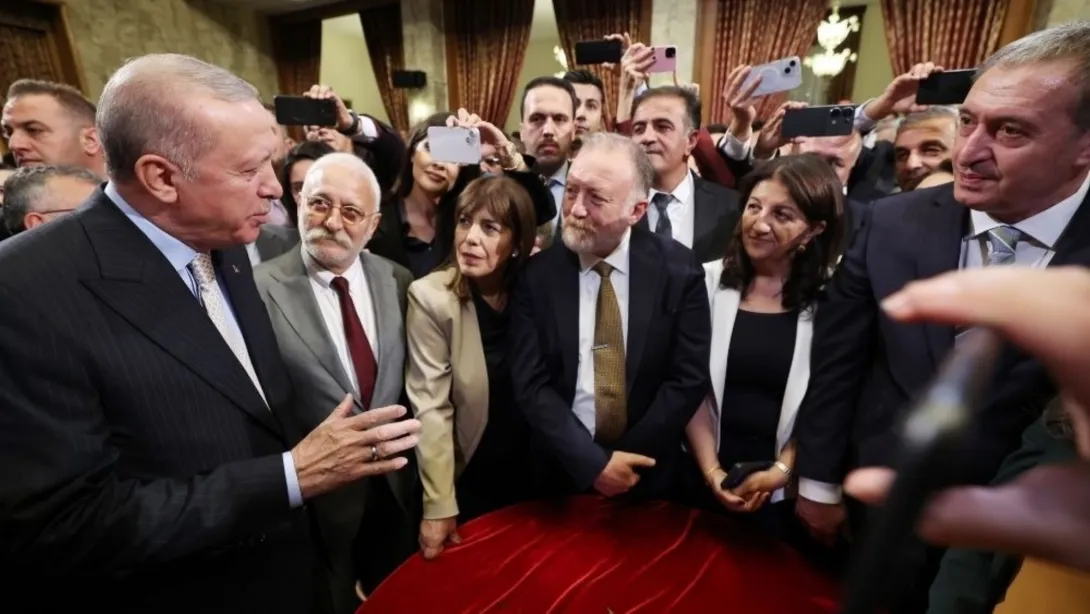
Erdoğan held a relatively low-key position during the first year of the process, sometimes to the point of sparking allegations of a "rift." Some attributed this to concerns about protecting Erdoğan from risks or to his role-sharing with Bahçeli. However, the disturbing silence, the repeated denial of permission for İmralı meetings, the attempts to postpone the establishment of the commission, the harsh statements on Syria, and most importantly, the extreme intensity of the March 19 Process suggest that this slowness (or resistance) is not entirely fictional (or imaginary). Furthermore, Erdoğan is unlikely to resign himself to anything.
Various theories have been put forward as to why this is the case. In my opinion, Erdoğan's difficulty in reconciling the process with his own priorities was the most significant factor. Erdoğan's priority, which he will not allow to be overshadowed by anything, is always the future of "his personal power." He approaches any development that does not serve this priority, or even one whose indirect benefit is not guaranteed (promised), with caution (or skepticism). What makes him a tough but easy-to-get-done negotiator at the national and international levels is related to the answer he always seeks to a very simple question: "What will I gain from this?" As Trump has said, it's easier to get ahead with a tough but clear-cut negotiator.
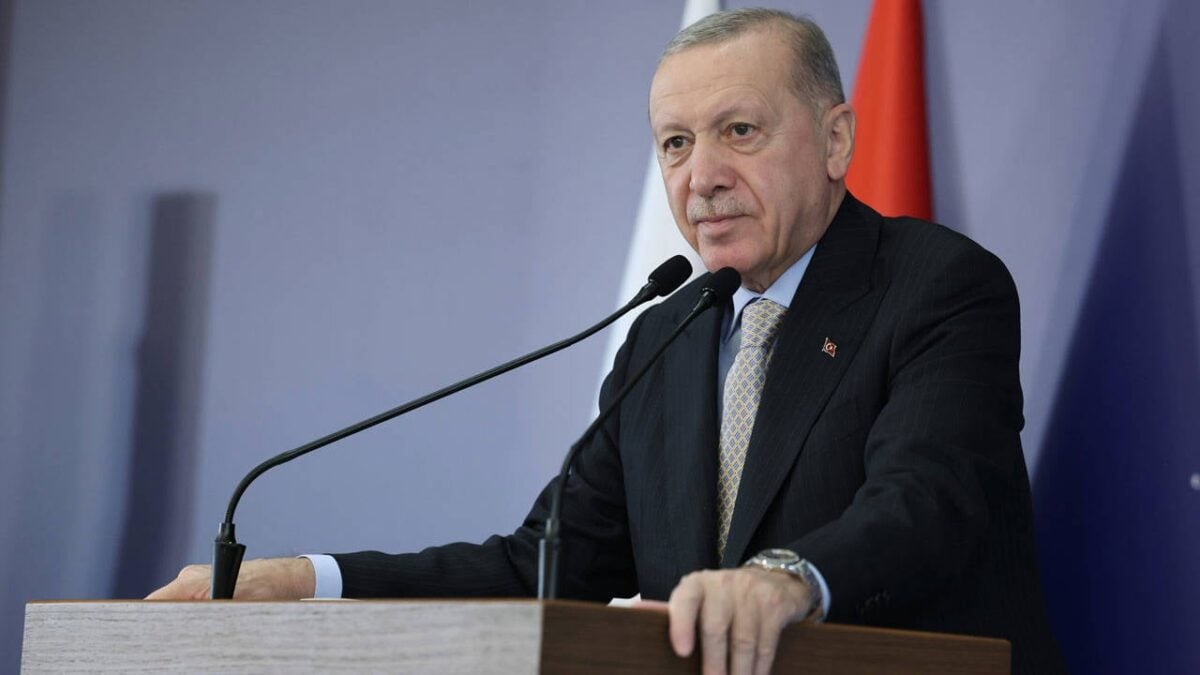
What happened after a year that led Erdoğan to "descend" to parliament and personally intervene in politics and the process? Again, some might say "because the time had come," but it seems the perception of opportunity or necessity stemming from a series of successive developments also played a role. The US trip and the "legitimacy" secured from Trump could be placed at the forefront. This legitimacy, or the image of an "actor to continue working with," which cannot be used in its raw form in domestic politics or be translated into a substitute for consent or political support, is directed at interlocutors in various conflict areas—predominantly external (neighboring) dynamics. Domestically, it is directed at "invisible" actors.
Erdoğan may have also seen serious opportunities in terms of domestic political dynamics. He resisted the pressure from other interlocutors to accelerate the process—which apparently wouldn't lead to a showdown—for longer than expected, leaving them without a move or a political agenda. No action was taken after the announcement of "It's your turn," demanding expectations quickly wore thin before they could be voiced, and Erdoğan's favor became something to be expected (though judging by the photos, his mouth is a mouthful). According to Pervin Buldan, even "the media needs to be put in order." Signs of potential for a "CHP-DEM rupture" never diminished, and the chorus that dominated the opposition media remained very committed to the plan. The March 19th process settled into an awkward balance of rallies and operations (transfers).
The scenes where we best see Erdoğan's intention to control the process and intervene in politics—through political means—are: images of the parliamentary opening, the scene in Numan Kurtulmuş's office after the session, and photos from the reception. Erdoğan has long been involved in politics through non-political means (primarily the judiciary). There likely won't be any change in this regard (and perhaps even more), but Erdoğan's "descending to parliament" and gathering around him all the professional political staff outside the CHP suggests he will now appear to be engaging in politics. The organizational operations and the cabinet reshuffle being discussed in the coming days point to his becoming the AKP Chairman.
The signs emerging regarding the process indicate that Erdoğan's priorities are beginning to prevail. Öcalan, who persistently requested the commission to come to him from the outset, was essentially saying, "I've completed the state-related part; I'll explain the political side to the commission." Now, both Bahçeli's call for Syria and Erdoğan's assigned task to the commission are for the commission to retrieve and deliver the "desired" messages from Öcalan. This represents a complete reversal of the commission's assigned mission. Another strong indication is the acceleration of constitutional work at the complex. Erdoğan is renewing his enthusiasm for integrating the constitution into the process, a task he had previously attempted but retreated from.
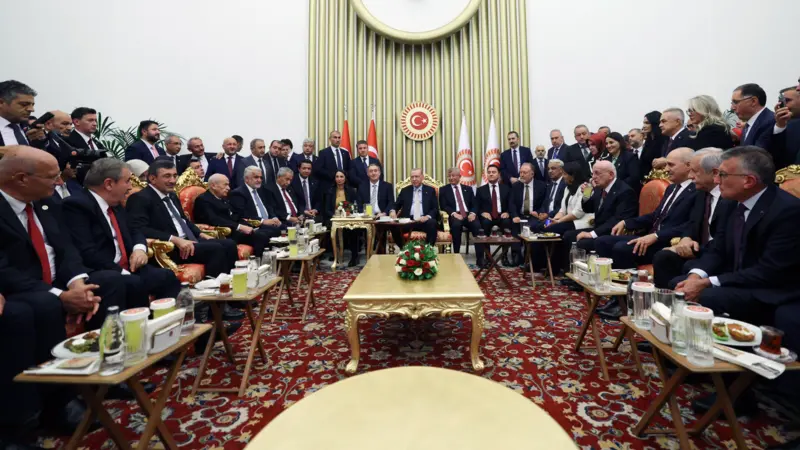
It's no secret that things in Syria are not progressing as quickly and in the desired direction. Indeed, overt threats and clashes are not being concealed but are being made public as mutual trump cards. However, all serious observers and commentators, while noting that things are not easy, still view the likelihood of serious threats materializing as low. It's highly unlikely that Türkiye will attack the SDF despite the US, or that the SDF will burn bridges to the contrary. It's difficult for anyone to get exactly what they want, nor is it possible for anyone to give exactly what they want. Recent reports suggest that an interim integration formula for the SDF armed forces is approaching.
The legitimacy derived from the US, its reach into Gaza, its new role in the region (and its eagerness to profit from it), and Erdoğan's recent adoption of a more moderate tone on the Syrian issue suggest an intention to overcome the crisis peacefully rather than escalate tensions. Trump, even eager to win a Nobel Prize, likely has no desire for further escalation in the region. Erdoğan is skilled at exploiting such moments of tension as bargaining opportunities. If he can secure the "legitimacy" that will ease his grip on Syria—at least enough to be presented as such—his appetite for shaping the domestic situation will increase significantly.
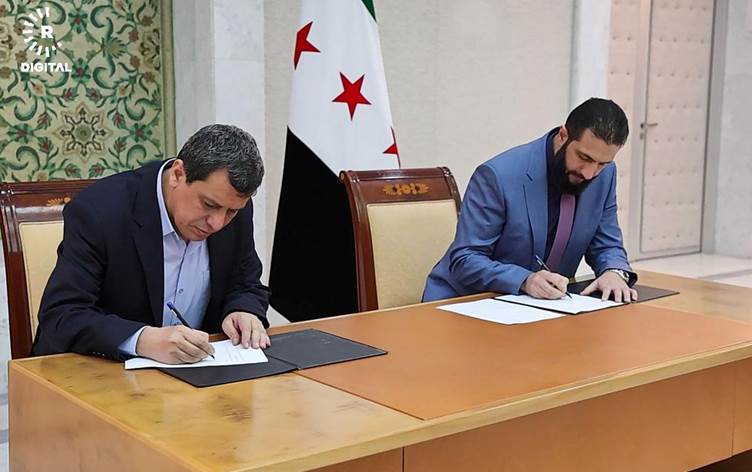
The most significant indicator strengthening the likelihood that the process will be firmly under Erdoğan's control and shaped according to his priorities is undoubtedly the Demirtaş decision. The "honorable return" opportunity, disguised as legality, such as not appealing the ECHR decision, was not exercised, and contrary to expectations—and almost out of spite—the objection was filed on the last day. This move, in addition to keeping Demirtaş, a target of Erdoğan's personal hostility, in prison, sent a significant message to anyone who even remotely approached such an expectation. It even emphatically underscored the disregard for the public relations (persuasiveness) aspect of the process and the imposition of a "favor" relationship.
The Demirtaş move yielded immediate results. A tension similar to the İmamoğlu-Özel tension, which has been constantly being tossed around within the CHP, has been rekindled for the DEM and its base regarding the Öcalan-Demirtaş line. Speculation on this issue has begun to pour in again. It wouldn't be surprising if this creates significant problems for the DEM in the already tight space it finds itself in, but it will certainly have a corrosive effect on the opposition, which hasn't objected to the process as much as it was desired and provoked, and even supports it. While it may provide the opportunity to criticize the government politically for now, it will also pose a short- to medium-term problem for the CHP leadership, which is trying to remain engaged in the process, especially in the context of the Commission-Öcalan meeting.
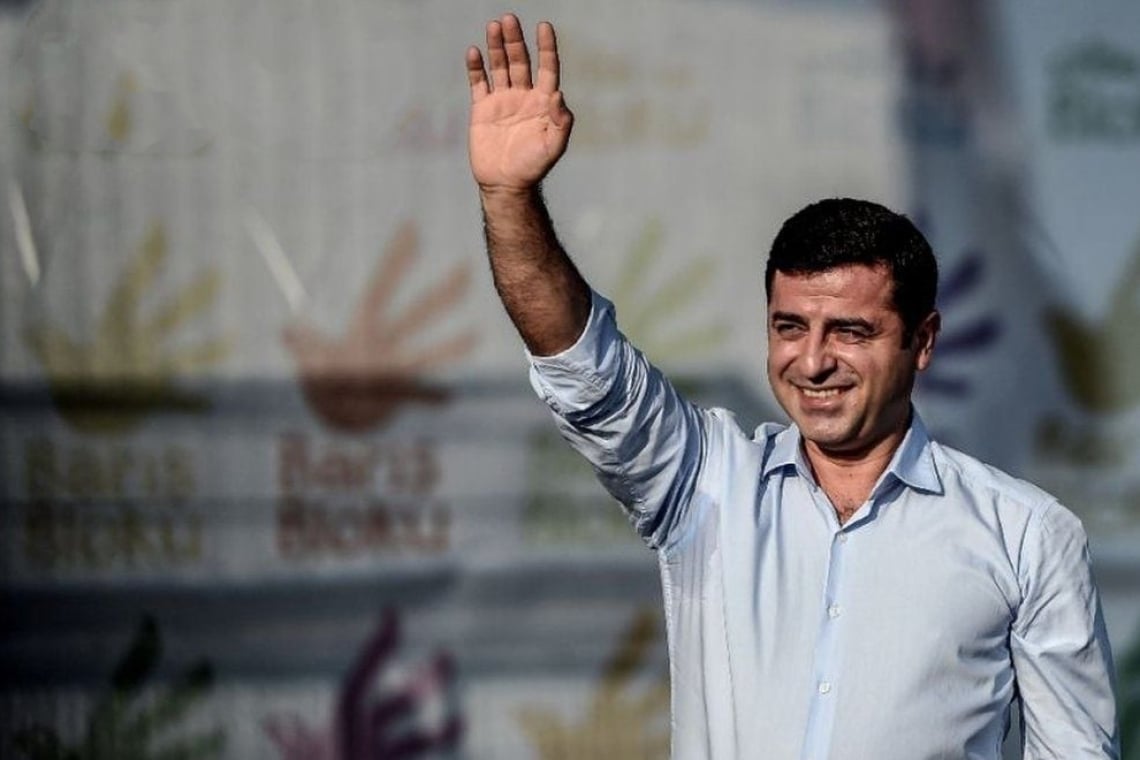
Erdoğan's role as the determinant of any process means that events will begin to unfold more simply and crudely. Even if extremely complex, even overly clever, engineering is involved in its implementation, a linear line (path) emerges that can be easily followed between the starting point and the desired destination. I doubt anyone who demands "Erdoğan be more involved" so the process can progress will be pleased with what happens next. (One should be careful what one wishes for.) Especially the optimists who have expectations within the context of "law" and "democracy" mentioned in the footnote Sırrı Süreyya Önder's letter to Öcalan after it was read.
Now, many might say, "It was like this from the beginning." They might think, "Bahçeli paved the way, the Democratic Regions Party (DEM) accepted the role, Öcalan stepped in, and the game set up to preserve Erdoğan's power is working." Those who claim the issue is a simple matter of political arithmetic or "horse-trading" might declare themselves vindicated. However, I believe the situation has reached this point through a tense and still-unfinished struggle, and that Erdoğan is acting with the belief that he has secured a suitable platform to reimpose his own priorities, which he has been pushing for the past year. How this move will continue depends on the actions of the other actors. However, I should also note that in the initial phase, the other actors were unable to expand their reach.
Medyascope





